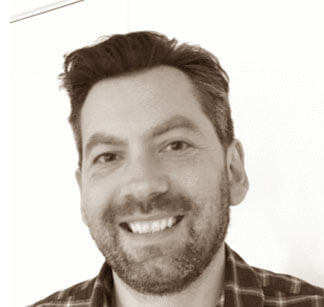Centre stage with Matthew Skelton, Founder and Head of Consulting at Conflux…

Biography
Born – Born and bred in Bradford, with stints in Oxford and London. Now living in Leeds.
Studied / Education background – Studied computer engineering (Computer Science and Cybernetics) at University of Reading, then an MSc in Neuroscience at the University of Oxford. Learned a huge amount working in London.
Current role / bio – Founder and Head of Consulting at Conflux. I specialise in Continuous Delivery, operability and organisation design for software in manufacturing, ecommerce, and online services, including cloud, IoT, and embedded software. I also curate the well-known DevOps team topologies patterns at devopstopologies.com and I’m co-author of the books Continuous Delivery with Windows and .NET (O’Reilly, 2016), Team Guide to Software Operability (Skelton Thatcher Publications, 2016), and Team Topologies (IT Revolution Press, 2019).
Q&A
Who do you work for and what does your role entail?
I founded Conflux in 2017 to offer high-value training and consulting to organisations building and running software systems. We work with Execs, IT leaders, and technical teams to help introduce and embed good practices for modern software delivery. We focus on Continuous Delivery, software operability, and organisation dynamics. Our work on Team Topologies in particular has helped many organisations around the world - including Netflix and Condé Nast International – to improve the effectiveness of their teams and team interactions for software delivery. We regularly run training courses in Continuous Delivery, software operability, IT operations (including SRE and ITIL), DevOps, and other modern practices. We’ve recently added further training courses around auxiliary skills like technical writing for blogs, giving tech talks, and whiteboard sketches; we have companion books for all these courses.
What made you choose IT as a career?
I’ve been interested in how things work all my life, and IT is a nice, complicated machine! My first job after university was developing software for medical imaging (MRI) machines, combining my recent study of both Cybernetics and Neuroscience. I’ve kept an interest in combined hardware-software devices ever since, developing software for oil & gas devices and more recently IoT systems. I think that an awareness of how physical systems work really helps with designing and operating software systems.
What do you think is required to be successful in IT?
It’s important to see “IT” as far more than technology but also the sociotechnical system of humans and machines. Become an expert in your field, but also develop an awareness of how the technology in your field is mediated by social dynamics.
What’s been your biggest work achievement of the last 12 months?
I have just co-authored a book with my colleague Manuel Pais called “Team Topologies” which addresses the challenges of organisation design for modern fast-flow software delivery. The book will be published in September 2019 by IT Revolution Press. We’ve had really good feedback from people so far, and we’re looking forward to sharing our ideas and approaches with people around the world over the coming months and years. We cover lots of aspects of modern software development at scale, and particularly:
1. Why using the “Spotify Model” of team design is not enough
2. The four fundamental team topologies needed for modern software delivery
3. The three team interaction modes that enable fast flow and rapid learning
4. How to address Conway’s Law, cognitive load, and team evolution with Team Topologies
The book is based on our work with organisations since 2013 plus research into what other organisations have found successful. We have case studies from some well-known companies and we know that people are already using the techniques to improve their organisations. We expect that organisations around the world will find the patterns and approaches really useful for sustainable software delivery.
What’s the best piece of advice you have ever been given?
Listen properly to others: listen not to respond but to really understand what the other person is saying.
What are your predictions for the IT industry for 2019/20 or beyond?
We will see high-performing organisations extend their lead over mediocre organisations, widening the gap between good practice and tired, old practices. We will see more organisations realise that static team structures are not enough to meet the dynamic needs of modern organisations.
Join Matthew Skelton at IP EXPO Manchester, 3-4 April 2019
“The Spotify Model has been very useful to lots of organisations but it’s not enough to adopt a fixed structure. We need to address team interactions, cognitive load, and organisation evolution to meet changing business needs. Learn how in my talk ‘Beyond the Spotify Model at IP EXPO.”
